Misconduct Warning Letter Samples
-
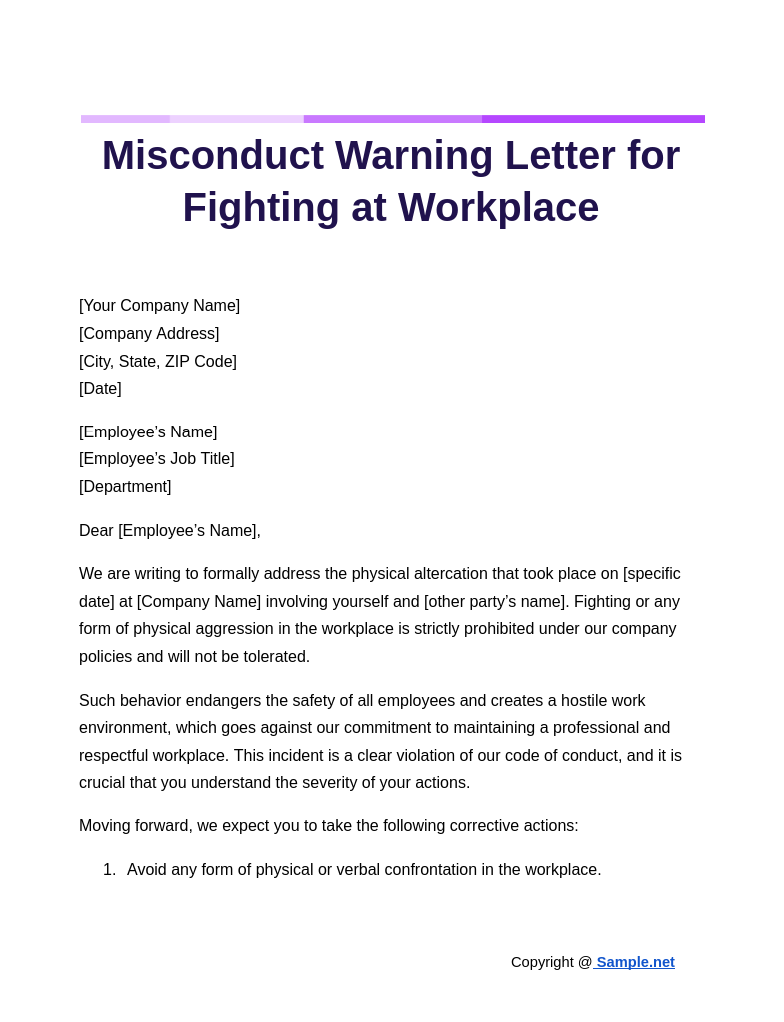
Misconduct Warning Letter for Fighting at Workplace
download now -
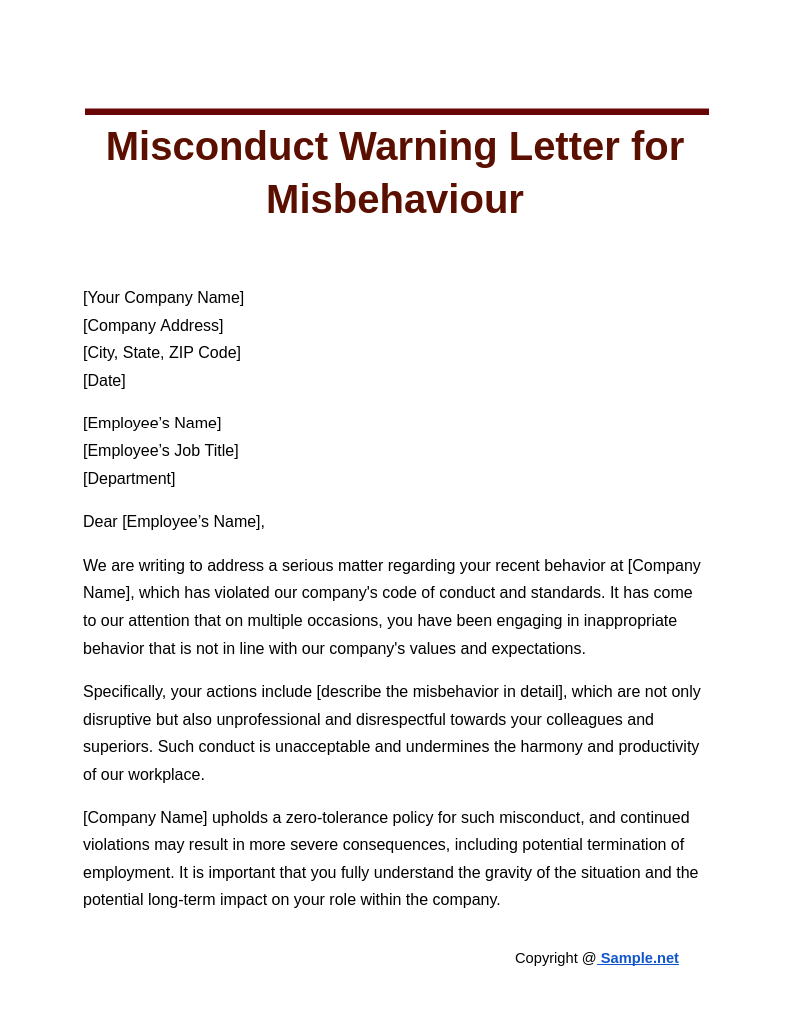
Misconduct Warning Letter for Misbehaviour
download now -
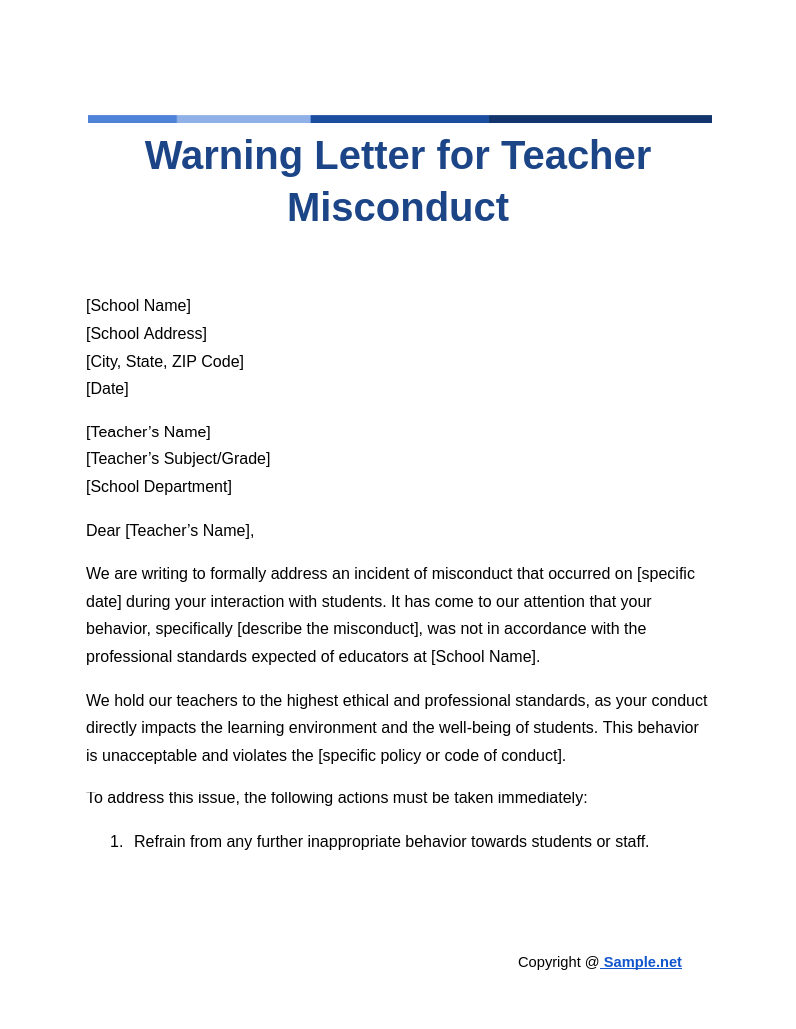
Warning Letter for Teacher Misconduct
download now -
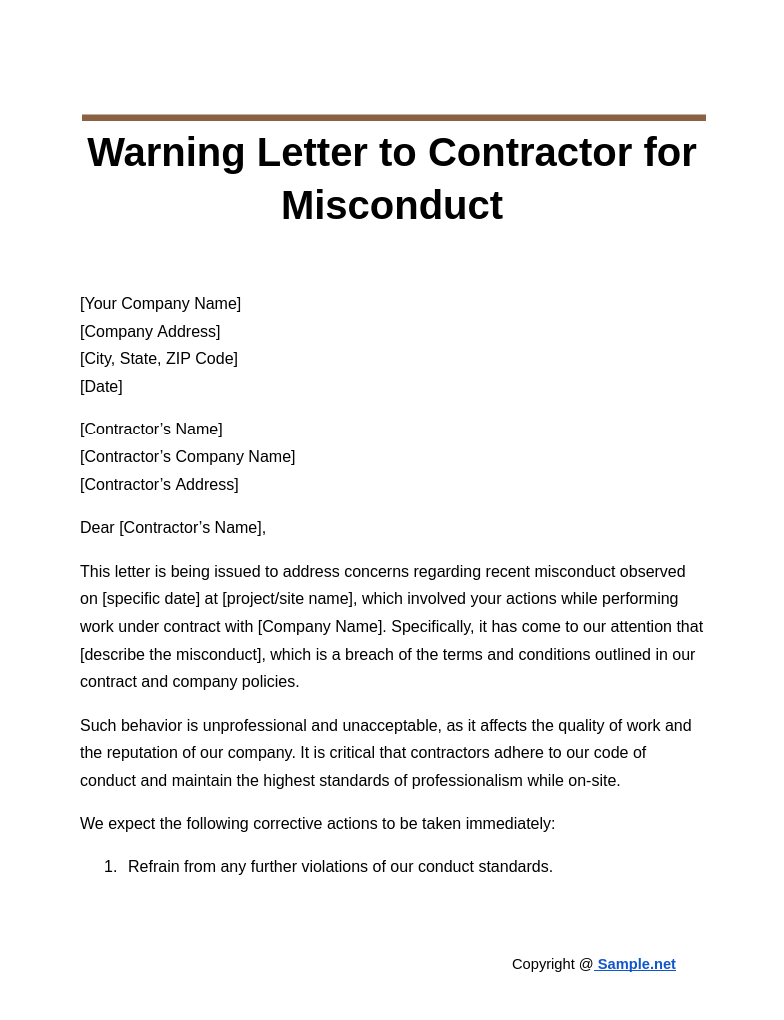
Warning Letter to Contractor for Misconduct
download now -
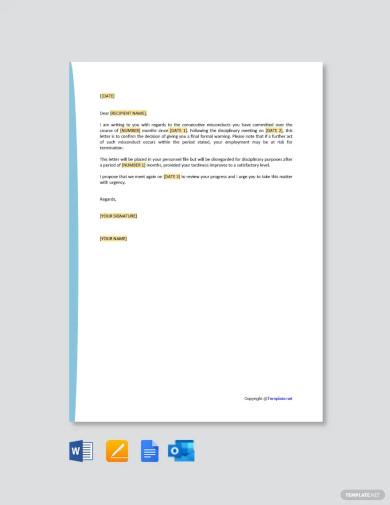
Final Warning Letter To Employee For Misconduct Template
download now -
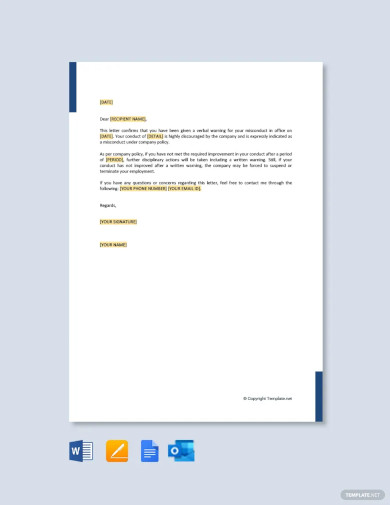
Free Verbal Warning Letter for Misconduct Template
download now -
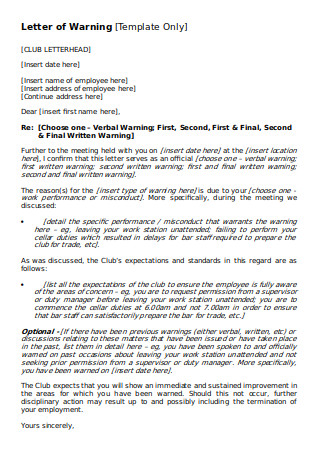
Letter of Warning
download now -
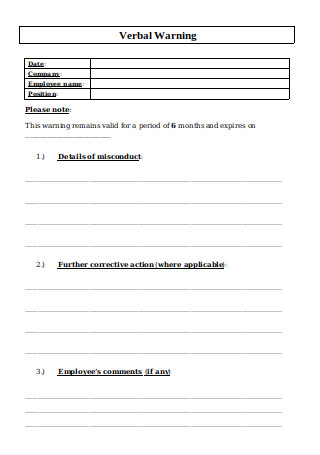
Disciplinary Warning Letter
download now -
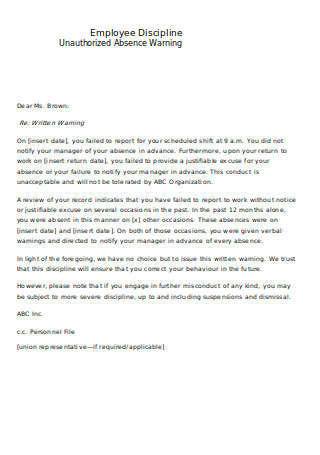
Employee Discipline Letter
download now -
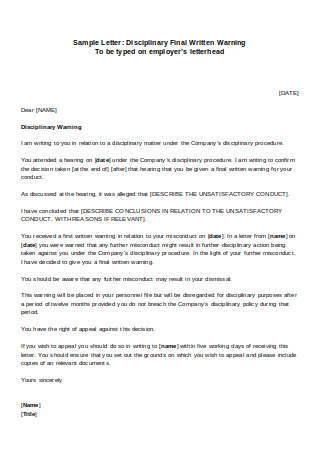
Final Written Warning Letter
download now -
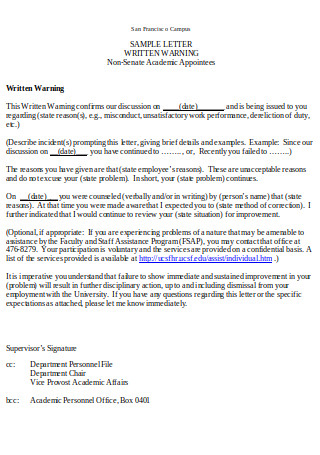
Sample Letter of Written Warning
download now -
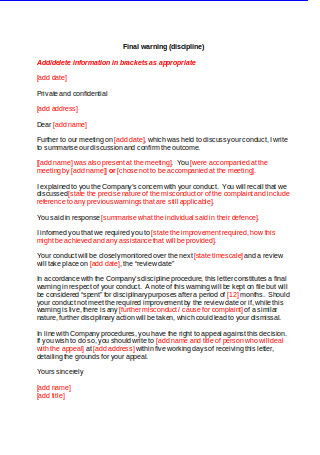
Final Warning Letter
download now -
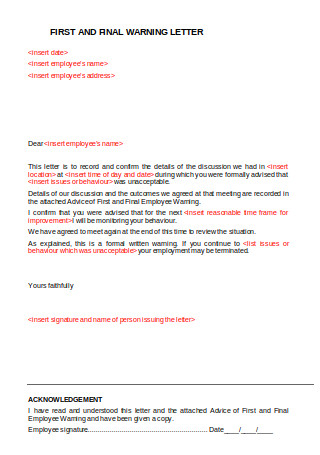
First and Final Employee Warning Letter
download now -
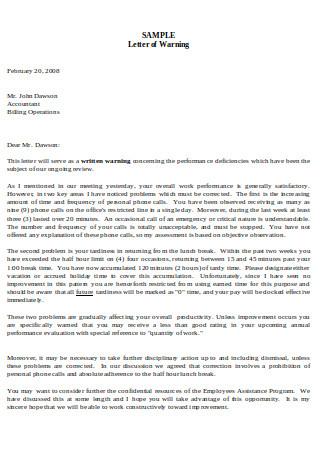
Sample Letter of Warning
download now -
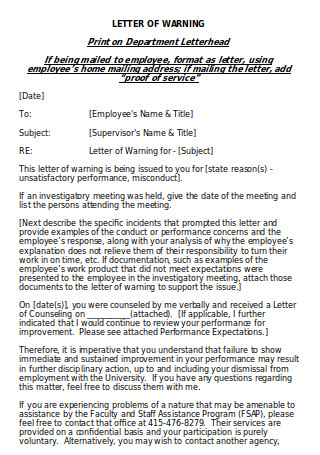
Letter of Warning Sample
download now -
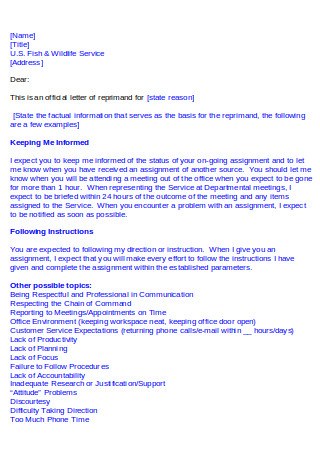
Sample Letter of Reprimand
download now -
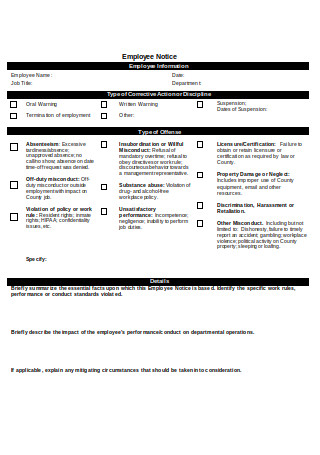
Employee Warning Notice
download now -
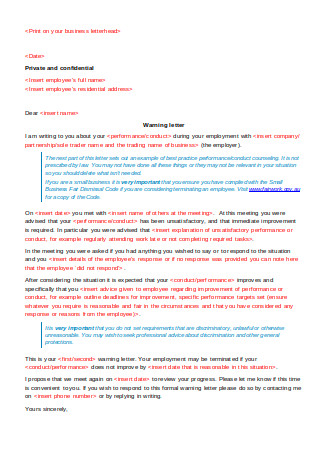
Letter of First and Second Warning Template
download now -

Final Warning Letter Template
download now -
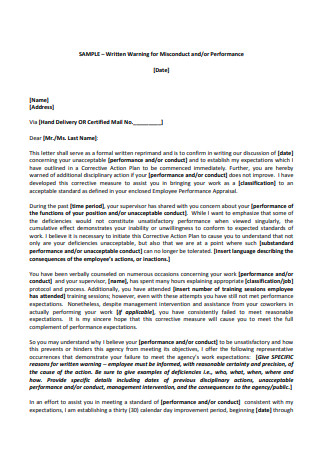
Written Warning for Misconduct
download now -
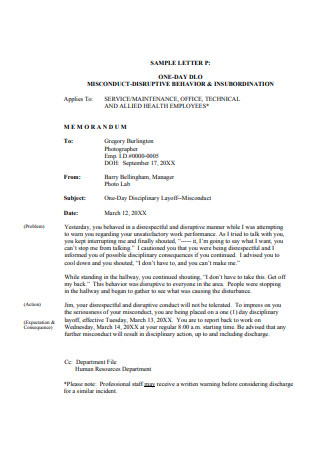
Sample Letter of Misconduct Disruptive
download now -
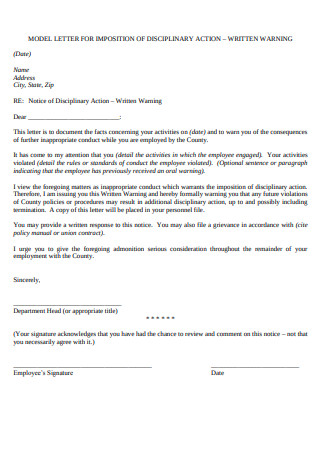
Written Warning Letter
download now -
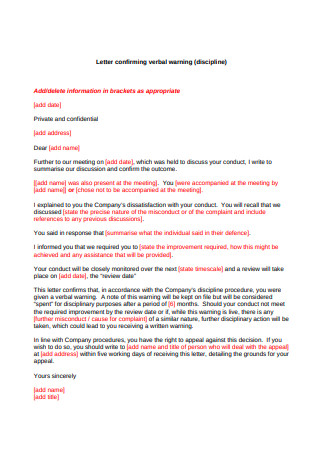
Letter Confirming Verbal Warning
download now -
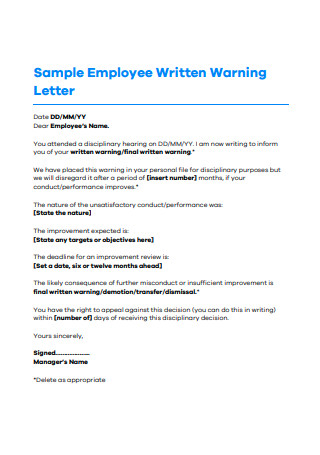
Sample Employee Written Warning Letter
download now -
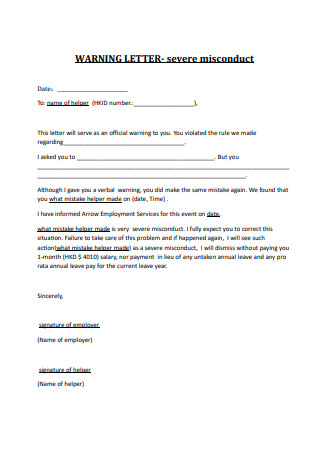
Warning Letter For Misconduct
download now -
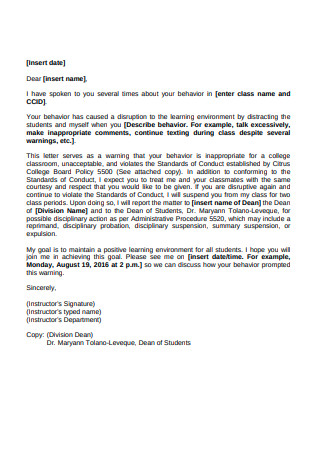
Student Conduct Warning Letter
download now -
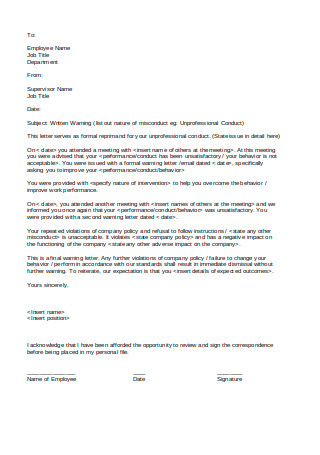
Simple Written Warning Letter
download now -
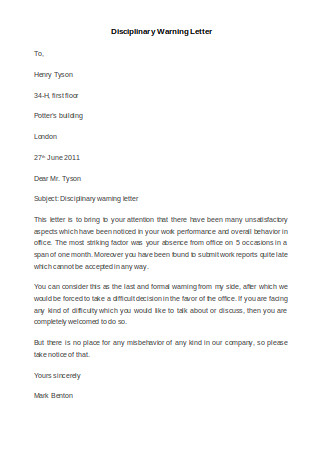
Disciplinary Warning Letter Sample
download now -
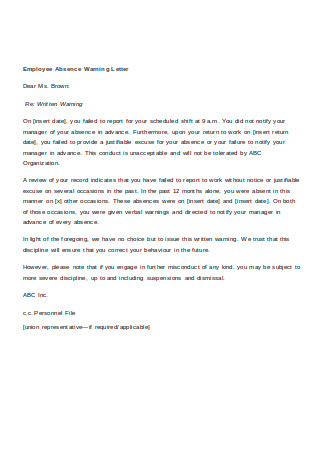
Employee Absence Warning Letter
download now -
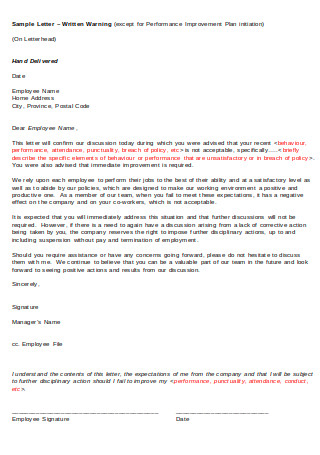
Letter of Written Warning Sample
download now -
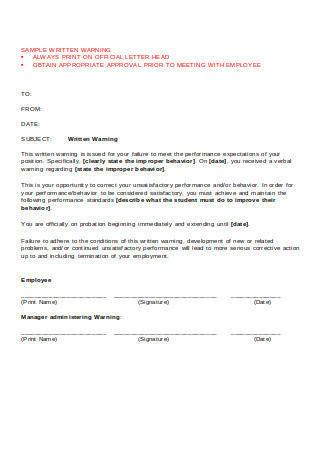
Written Warning Sample
download now -
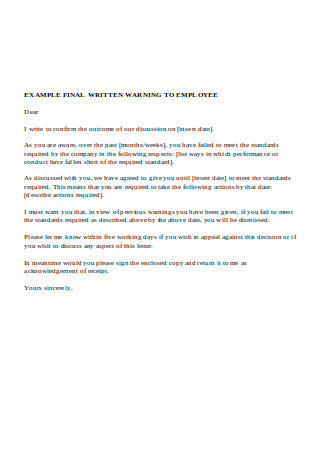
Final Written Warning to Employee
download now -
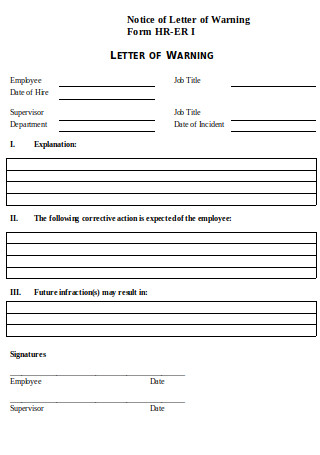
Notice of Letter of Warning
download now -
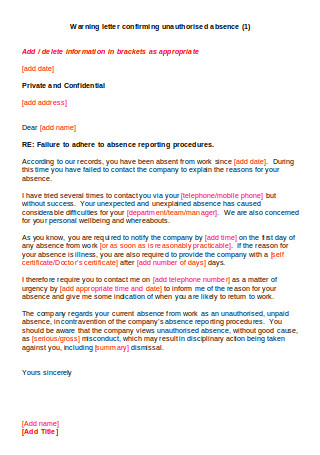
Warning Letter Confirming Unauthorised Absence
download now -
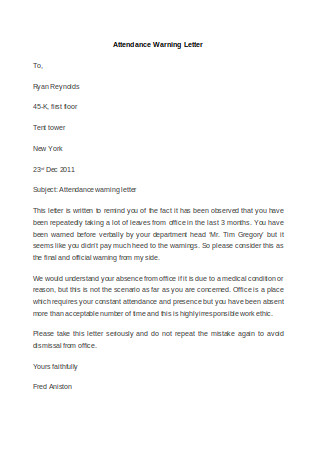
Attendance Warning Letter
download now -
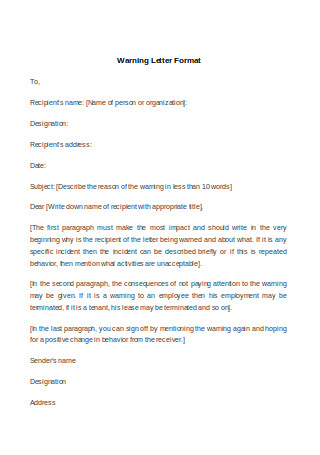
Warning Letter Format
download now -
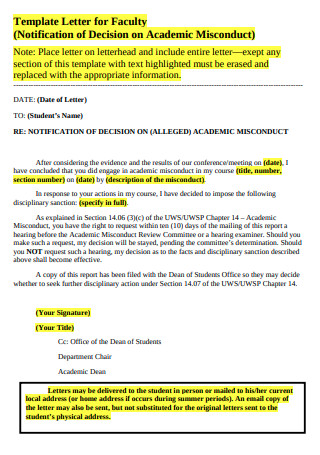
Academic Misconduct Template
download now
FREE Misconduct Warning Letter s to Download
Misconduct Warning Letter Format
Misconduct Warning Letter Samples
What is a Misconduct Warning Letter and When is it Needed?
When is a Misconduct Warning Letter Needed?
What Should Be Included in a Misconduct Warning Letter?
How Do I Write a Misconduct Warning Letter?
When should a misconduct warning letter be issued?
Can a misconduct warning letter lead to termination?
What happens if an employee refuses to sign the misconduct warning letter?
How should an employee respond to a misconduct warning letter?
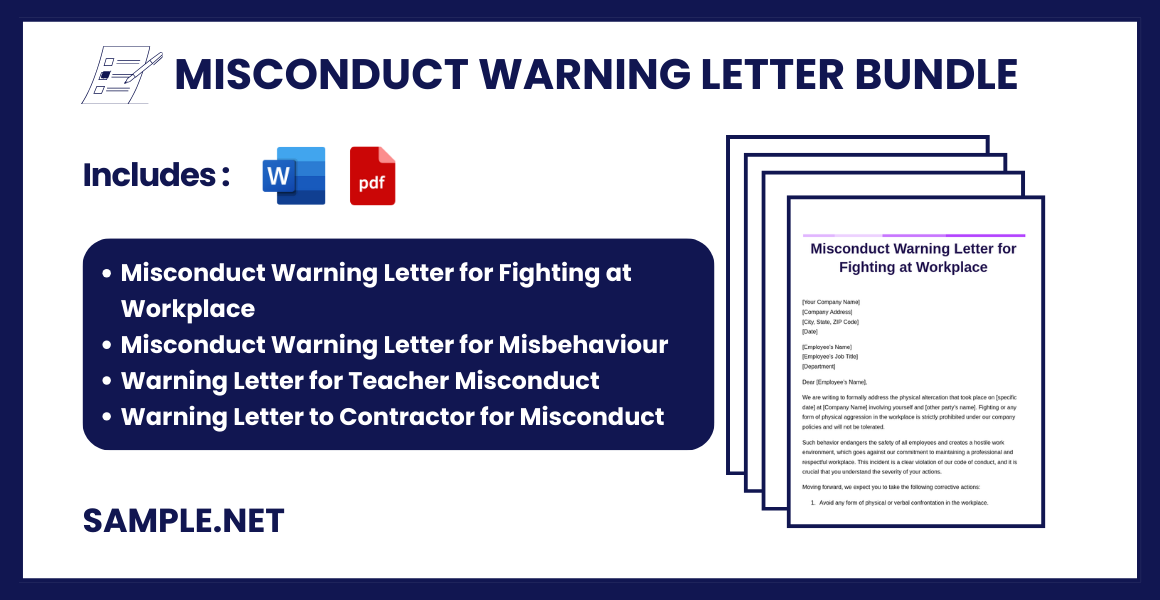
Download Misconduct Warning Letter Bundle
Misconduct Warning Letter Format
[Your Company’s Letterhead]
[Date]
[Employee’s Name]
[Employee’s Job Title]
[Department]
[Company Name]
Subject: Warning for Misconduct
Dear [Employee’s Name],
This letter serves as a formal warning regarding your conduct during the course of your employment at [Company Name]. We have noted with concern that your behavior in the workplace has not been in line with our company’s policies and expectations. Specifically, the following incident(s) have been observed:
[Detail 1: Describe the specific misconduct, including date(s) and situation(s)]
[Detail 2: Describe any previous informal warnings or discussions]
Your actions have violated the company’s [specify the policy/code of conduct violated], which you have been made aware of during your induction and subsequent meetings.
We expect all employees to adhere to the company’s standards of conduct and professionalism. Repeated instances of such behavior will not be tolerated, and failure to comply with company policies could result in further disciplinary action, up to and including termination of your employment.
Please treat this letter as a final warning and take immediate corrective actions to ensure that such incidents do not occur again.
We would like to schedule a meeting on [date] to discuss this matter further and provide you with any support or guidance you may need to improve your behavior.
Sincerely,
[Your Name]
[Your Job Title]
[Department]
[Company Name]
What is a Misconduct Warning Letter and When is it Needed?
A Misconduct Warning Letter is an official document issued by an employer or organization to an employee who has violated company policies, engaged in inappropriate behavior, or breached workplace rules. It serves as a printable notice that the employee’s behavior is unacceptable and needs to be corrected. This letter typically outlines the nature of the misconduct, the specific policies violated, and the consequences if the behavior continues.
When is a Misconduct Warning Letter Needed?
- Policy Violations: If an employee disregards or violates company policies (e.g., attendance policies, safety rules), a warning letter may be issued to address and correct the behavior.
- Inappropriate Behavior: Situations involving harassment, discrimination, or any form of workplace bullying can trigger a misconduct warning letter as part of the disciplinary process.
- Poor Performance: If the employee’s actions are causing disruption or harming the company’s operations, a warning letter can highlight performance issues linked to misconduct (e.g., neglecting duties).
- Repeated Offenses: In cases where previous verbal or informal warnings have been ignored, a formal misconduct warning letter is often the next step in escalating the disciplinary process.
- Legal or Ethical Breaches: Any action by an employee that crosses ethical lines or violates legal standards, such as theft, dishonesty, or fraud, would necessitate a misconduct warning letter. You can also see more on Warning Notice.
What Should Be Included in a Misconduct Warning Letter?
Here’s a short summary of what should be included in a Misconduct Warning Letter:
1. Header: Company name, address, and date.
2. Employee Details: Full name, job title, department.
3. Subject Line: Formal warning about misconduct.
4. Incident Description: Detailed explanation of the misconduct with dates and facts.
5. Policy Reference: Mention specific company policies violated.
6. Consequences: Immediate consequences of the misconduct.
7. Improvement Plan: Steps the employee can take to correct behavior.
8. Future Consequences: Warning of further action if misconduct continues.
9. Closing: Offer support or request a follow-up meeting.
10. Signature Block: Signatures from the manager/HR and space for the employee’s acknowledgment.
How Do I Write a Misconduct Warning Letter?
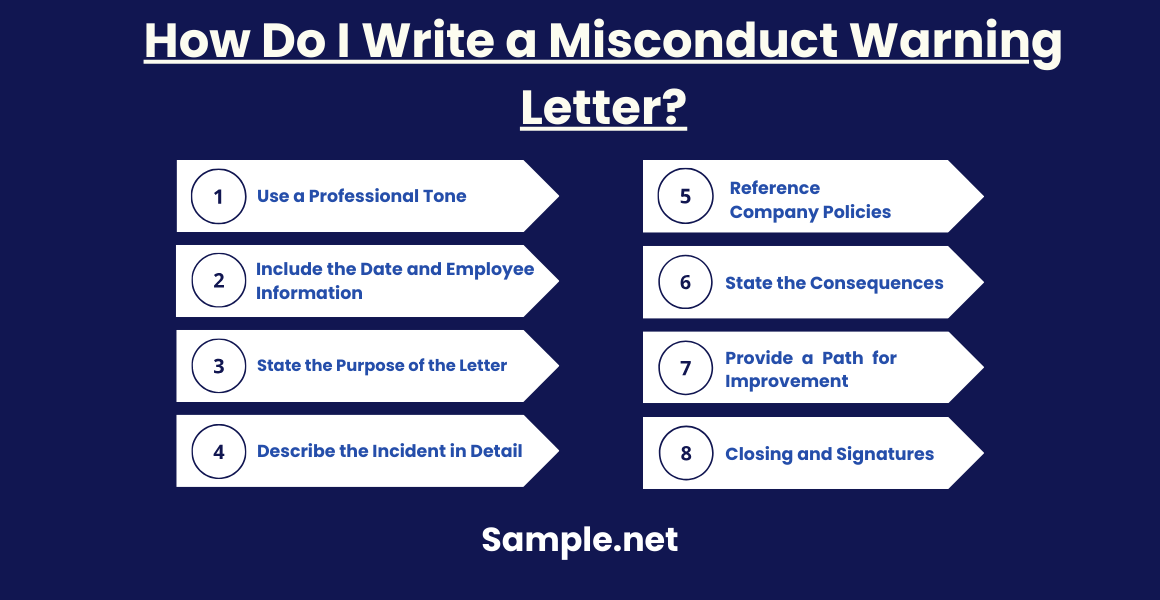
Writing a Misconduct Warning Letter involves clearly and professionally addressing the behavior or actions of an employee that violated company rules or policies. You can also see more on Dismissal Letters. Here’s a step-by-step guide on how to write an effective misconduct warning letter:
1. Use a Professional Tone: Ensure the letter is formal, respectful, and free of emotional language. The goal is to be clear and direct without being confrontational.
2. Include the Date and Employee Information: Start by including the date of the letter, and then the employee’s full name, job title, and department to ensure the letter is specific to the individual.
3. State the Purpose of the Letter: Clearly indicate that the letter is a formal warning about misconduct. This should be stated in the opening paragraph.
4. Describe the Incident in Detail: Explain the misconduct or policy violation with specific dates, times, and examples of behavior. Be objective and factual. For example, if the employee was late or displayed inappropriate behavior, state when and how it occurred.
5. Reference Company Policies: Mention the specific company rules or policies that were violated. This helps show the employee that the behavior breaches a specific standard set by the company. You can also see more on Behavior Warning Letter.
6. State the Consequences: Explain how the misconduct has affected the workplace or the employee’s performance. If relevant, outline any immediate consequences the employee is facing (e.g., temporary suspension, reduced privileges).
7. Provide a Path for Improvement: Offer steps the employee can take to correct their behavior and avoid further disciplinary action. This could include attending training, improving performance, or adhering to punctuality standards.
8. Outline Future Consequences: Be clear about what will happen if the misconduct continues. This could range from further disciplinary action to termination.
9 Request a Meeting (Optional): You can suggest a follow-up meeting to discuss the misconduct and any plans for improvement, ensuring the employee understands the gravity of the situation.
10. Closing and Signatures: End the letter by offering support if the employee has questions or concerns. Ensure the letter is signed by a manager or HR representative, and if necessary, request the employee’s signature to acknowledge receipt.
Issuing a misconduct warning letter is an important step in maintaining a professional work environment. By following a clear and fair process, employers can address the situation while giving the employee an opportunity to improve their behavior and meet expectations. You can also see more on Disciplinary Letters.
When should a misconduct warning letter be issued?
It should be issued when an employee engages in inappropriate behavior or breaches workplace policies, after verbal warnings have failed.
Can a misconduct warning letter lead to termination?
Yes, if misconduct continues despite warnings, it can escalate to termination as part of the disciplinary process.
What happens if an employee refuses to sign the misconduct warning letter?
If the employee refuses to sign, the letter is still valid. In such cases, HR or management should document the refusal, and another witness can sign to confirm that the letter was presented to the employee, ensuring the process is properly recorded.
How should an employee respond to a misconduct warning letter?
The employee should carefully review the letter, acknowledge the issues raised, and provide any relevant explanations or clarifications in writing. It’s also essential for the employee to commit to improving their behavior and complying with the company’s expectations moving forward.
